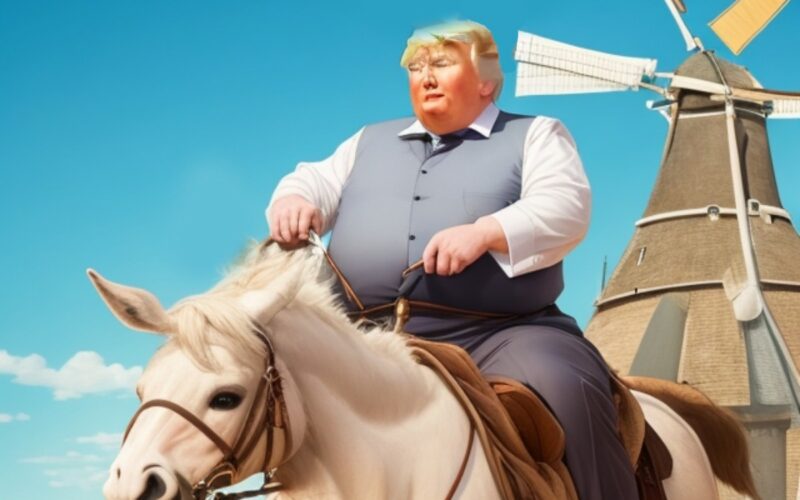In the wake of the January 6th Capitol insurrection, the American political landscape finds itself grappling with an unexpected question: Could the 14th Amendment be used to disqualify disgraced twice impeached, 4 time indicted former republican president Donald Trump from seeking the presidency again? Legal scholars and lawmakers are scrutinizing this constitutional provision as they assess the implications of Trump’s actions leading up to and during the violent events of that fateful day. But running for president to escape justice isn’t exactly a platform that screams “Man of the People“.
The 14th Amendment, ratified in 1868 with the intent of ensuring equal protection under the law and addressing the aftermath of the Civil War, contains a little-known clause that is gaining renewed attention: Section 3. This clause states that any public official, including the President of the United States, who has “engaged in insurrection or rebellion” against the Constitution, shall be disqualified from holding office. Trump is by no means qualified to run for president of our Nation, let alone pretend like his assault on our democracy was one of his juvenile tantrums.
Critics of Trump’s rhetoric and actions on January 6th argue that he crossed the line into inciting insurrection, thus meeting the threshold set forth by the 14th Amendment. During a rally held in the shadow of the Capitol, Trump repeated unfounded claims of election fraud and urged his supporters to “fight like hell” and “stop the steal.” Subsequently, a mob of his supporters stormed the Capitol, resulting in violence, vandalism, and loss of life. Donald Trump watched the carnage unfold from the White House and did absolutely nothing to deter the assault.
Legal experts are divided over the exact interpretation of the 14th Amendment’s Section 3 clause. Some assert that it was intended to address cases precisely like this one: instances where a public official uses their position of authority to actively foment rebellion against the very foundations of the Constitution. Others argue that the clause’s language may require a more direct and explicit involvement in the insurrection itself. Although there can be no question of what unfold on January 6th and who was the catalyst.
However, the 14th Amendment does not demand a criminal conviction for disqualification. Instead, the decision to invoke this clause lies in the hands of the legislative branch. This constitutional avenue represents a unique blend of legal and political considerations, where the interpretation of the law intersects with the practical exercise of power.
As debates unfold about the potential application of the 14th Amendment, the nation finds itself at a pivotal juncture in its history. The Capitol insurrection laid bare the fragility of democratic institutions in the face of political unrest, and the question of accountability looms large. While some argue that the American people have already rendered their judgment on Trump through the ballot box, others emphasize the importance of upholding the principles of the Constitution and ensuring that those who incite violence are held responsible. Inciting an insurrection to stay in power is an insult to the people of our Nation and an end run around our political system. Americans despise dictators and con men.
Regardless of the outcome, the discussions surrounding Trump’s potential disqualification highlight the enduring power of the Constitution to shape the course of the nation’s future. The 14th Amendment, crafted in response to a divided nation recovering from civil strife, continues to serve as a touchstone for addressing contemporary challenges to the democratic process. The fact we can openly discuss barring a disgraced former president from having the reigns of power shows that our democracy is strong and working.
Whether the 14th Amendment will be invoked to disqualify Trump from seeking the presidency once again is a testament to the enduring relevance and adaptability of the Constitution in the face of unforeseen circumstances. As lawmakers and legal experts navigate the complex terrain of accountability, the American people remain engaged observers in this unfolding chapter of their democratic experiment.
Photo by AWF

